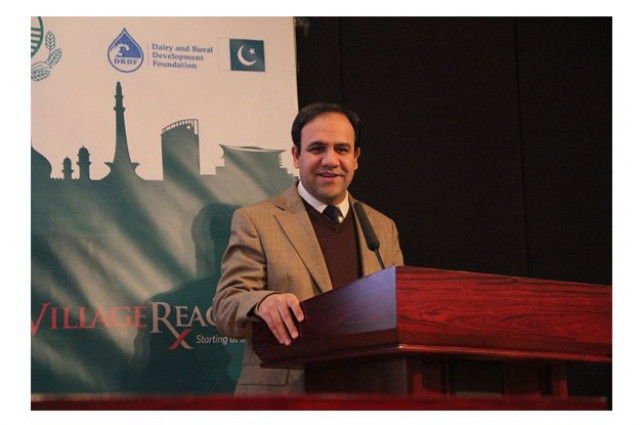Potential to lead: Using technology to overcome poverty
Innovators present solutions to health, agriculture, disaster response and education challenges

Innovators present solutions to health, agriculture, disaster response and education challenges. PHOTO: fb.com/ITU.punjab
They attended the concluding session of the Lahore International Development Design Summit (IDDS). The summit, held from January 8 to 22, was part of the global initiative of the Innovations for Poverty Alleviation Laboratory (IPAL) and the International Development Innovation Network (IDIN) led by D-Lab at the Massachusetts Institute of Technology (MIT). It was funded by the United States Agency for International Development’s Global Development Lab.
Speaking at the concluding session, ITU Vice Chancellor Dr Umar Saif said that Pakistan had great potential to meet the contemporary development challenges by using information and communication technology (ICT). He appreciated the commitment of the participants who had travelled to Pakistan despite amid security concerns. He assured them that their expertise would be utilised to overcome various social problems in Pakistan.
IPLA Director Mustafa Naseem said one of the teams had proposed a design to make the polio vaccination campaign more effective. “Such real-world solutions is the need of the hour.”
Speaking to The Express Tribune, Catherine Rakama, one of the innovators from Kenya, said her team had designed a low-cost project for women associated with the embroidery industry in Gujranwala.
Rakama said the proposed solution would help the women workers get access to market with a low-level technology. “Our aim is to provide them access to the market so that they can earn a better living.”
As many as 30 innovators in six teams have worked for two weeks in the Punjab designing prototype solutions to challenges related to health, agriculture, disaster response and education. The teams worked on projects providing low-cost and practical solutions to various social issues.
Of the 30 participants, 12 were Pakistanis. The others hailed from Central and South America, North America, Africa, the Middle East, Europe and Australia.
This year’s innovators, selected following an application process, included experts in software development, electrical engineering, design, health, agriculture, and other fields. The summit organisers had worked with communities in and around Lahore and other parts of the province to identify challenges that could be addressed using information communications technology. The participants visited the communities frequently throughout the summit to learn about challenges and develop solution prototypes together with community members. Summit partners will support the projects with resources, mentorship, and a workspace for innovators looking to take their prototypes to the next level. One of the projects was about an SMS-based feedback system for parents of children studying at public schools. The International Development Design Summits are a hands-on design experiences that bring people together from all walks of life to co-create low-cost, practical innovations.
Published in The Express Tribune, January 22nd, 2016.



















COMMENTS
Comments are moderated and generally will be posted if they are on-topic and not abusive.
For more information, please see our Comments FAQ